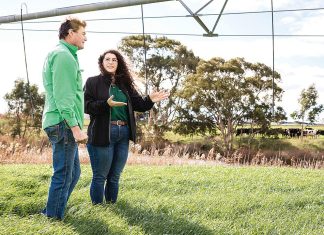The state government has a crucial decision to make in coming weeks to support Victoria’s sustainable timber industry transitioning to a plantation resource, or oversee the collapse of another essential manufacturing industry.
This is not just about 250 jobs in Heyfield, but thousands of jobs reliant on ASH products.
Australia imports close to $2 billion of wood product, with Heyfield’s Australian Sustainable Hardwood mill one of the leading lights in the production of high value timber product which is not only in high demand, but acts as an import substitute, improving the nation’s balance of trade.
Agriculture Minister Jaala Pulford must implement decisions that will allow ASH and the other mills facing resource shortfalls to continue operation, preserving the industry and protecting the employment that is the financial lifeblood of Heyfield and the wider Gippsland community.
Owner of ASH, the Hermal Group, has indicated it intends to be fully reliant on hardwood plantation timber within decades.
An immediate move to plantation timber is impractical for two reasons the existing plantations are still immature and trees take time to grow, and the existing milling technology is not set up to process immature saw logs.
In recent days the state and federal governments have been willing to commit millions of taxpayers’ dollars subsidising Alcoa’s Portland smelter for the next four years, to protect employment in western Victoria and to preserve a valuable export industry.
Gippsland’s timber industry can be preserved for far less impost on the public purse.
It is in the government’s ability to release hardwood resources in the regrowth forests from 1939 and 1980 bushfires, which will carry the industry through until commercial plantations and farm forestry become able to supply our hardwood needs.
Habitat protection measures for the Leadbeater’s Possum and creation of artificial nesting hollows have already led to a significant increase in verified sightings of the possum that was claimed to be on the verge of extinction.
These measures have shown the possum can be protected, while still allowing harvesting of regrowth forest, including regrowth from previous harvesting and from the 1939 and 1980s fires.
It is worth noting old-growth forest is the possum’s preferred habitat, not regrowth forest.
To do less than supporting ASH and Gippsland’s timber industry will be nothing short of a sell-out of the community.
It would also add credence to the assertions of the government’s political foes that it is more concerned with winning votes in inner Melbourne electorates than with the economic future of Victoria.
Peter Hill






